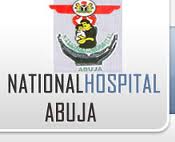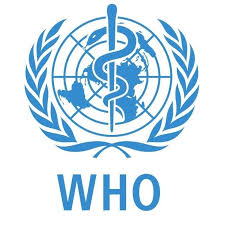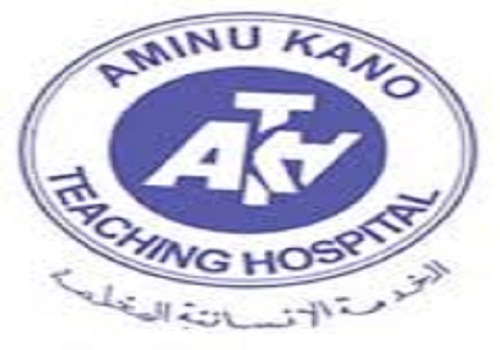The committee was set up by the MDCAN, UCTH branch to consider the raging controversy over the document released by NUC (Nigerian Universities Commission) regarding requirements for clinical lecturers to teach in medical schools in Nigeria.
The terms of reference were:
- To determine the immediate and remote cause of the current discussion regarding the medical fellowship qualification with other degrees in Nigeria vis a vis PhD
- To organize a template for medical qualifications and it equivalent to other qualification in Nigeria
- To recommend measures that will address perceived disagreement amongst employers of medical fellowship and other workers
- Any other findings and recommendations necessary to address the issues surrounding award of medical fellowship
Findings
1. The committee discovered that sometime in the early 2000s, the NUC issued a blanket statement that all lecturers must have a PhD to teach in the Universities. When this position was extended to medical schools, the National Post-graduate Medical College of Nigeria (NPMC), as trainers of the Fellowship, was brought in to clarify the position. This was done through a stakeholders meeting between NUC and NPMCN, and it was concluded that for the pre-clinical lecturers, a PhD was mandatory to teach the basic sciences of Anatomy, Physiology, Biochemistry, and pharmacology. However for the clinical sciences; a Fellowship qualification is mandatory since clinical training is beyond only academic qualifications but also entails clinical components with live patients.
However, probably due to the changing personnel in the NUC and with the attendant lack of knowledge of what the fellowship is all about, the controversy has resurfaced. And it would also appear the NPMCN's current leadership may not be aware of this previous stakeholder’s meeting and conclusions because it should have referred to it or reminded NUC to check the records.
 2. The committee looked at the training of students in other degree programmes vis a vis the training of MBBS students. For both of this, it was observed that the British system of awarding degrees is what is in use. A regular non-medical student in the university spends 16 weeks in a semester making a total of 32 weeks per session. Therefore, for the the 4 years of study, the student spends 128 weeks in school before graduation. On the other hand, an MBBS student spends 32 weeks in his first year in school (pre-basic) and subsequently, spends 26 weeks per semester making a total of 52 week per session. Therefore for the remaining 5 years of his training he/she spends a total of 260 weeks. Hence for the 6 years of training he spends a total of 292 weeks in school before graduating amounting to 9 academic sessions as against 4 academic sessions of a non-medical graduate. Therefore the 6 years training to acquire an MBBS degree is not actually 6 years but 9 academic sessions.
2. The committee looked at the training of students in other degree programmes vis a vis the training of MBBS students. For both of this, it was observed that the British system of awarding degrees is what is in use. A regular non-medical student in the university spends 16 weeks in a semester making a total of 32 weeks per session. Therefore, for the the 4 years of study, the student spends 128 weeks in school before graduation. On the other hand, an MBBS student spends 32 weeks in his first year in school (pre-basic) and subsequently, spends 26 weeks per semester making a total of 52 week per session. Therefore for the remaining 5 years of his training he/she spends a total of 260 weeks. Hence for the 6 years of training he spends a total of 292 weeks in school before graduating amounting to 9 academic sessions as against 4 academic sessions of a non-medical graduate. Therefore the 6 years training to acquire an MBBS degree is not actually 6 years but 9 academic sessions. In the postgraduate area, masters degree programme takes 3 semesters (48 wks) and the PhD programme take another 6 semesters (96 weeks). Therefore from undergraduate to PhD takes a total of 272 weeks while the MBBS takes 292 weeks. It is interesting to note that, the pass mark for all exams in MBBS is 50% as against 40% for non medical courses.
Sometimes students fail even when they have 50% but fail the clinical section of the examination.
This could be the wisdom in starting MBBS as Lecturer II same as PhD when they are employed to teach in the basic medical sciences in the Universities while trying to acquire a PhD in those sciences.
The course work for the non-medical degree entails credit hours of about 16 hours per week. However, for MBBS, for almost all weeks of study, a student spends an average of 6 hrs of lectures per day, for the 5 days of the week amounting to about 30 hours per week. This is even excluding the weekends which medical students are expected to be in hospitals for their clinical training.
The postgraduate training post MBBS leading up to the award of the Fellowship is not done on Semester basis but on a continuous period of 36 months of junior residency training and another 36 months of senior residency training.
For a candidate to be admitted into the programme, he must have an MBBS and then must pass the Primary exam of the NPMCN. During the period of 36 months, the candidate engages in didactic clinical teaching in the ward, seminar presentations, journal reviews and clinical essay presentations.
Since, it is both academic and clinical training, the candidate also sees patients, takes a history, examines, investigates and treats patients. He also takes call duty outside of the official hours (from 4pm – 8am the following day) and then continues with his routine activities for the new day. At the end of this period of 36 months, he writes the part 1 examination of the NPMCN. The examination is done outside of his training centre and has different components – paper 1(MCQ), paper II (written), Practical, clinical 1, Clinical II and then orals.
The senior residency starts after passing the part I exams. This takes another 36 month. It involves the same academic activities as in the junior residency but now with training emphasis on patient care, managerial skills in leading the health care team and making difficult decisions. Several workshops on research methodology and management are organized by NPMCN. The candidate picks a research topic and write a proposal to NPMCN for approval. He is guided by at least 2 supervisors who are his trainers and eventually defends the dissertation with the NPMCN after completion of the mandatory 36 months. This is the part II examination and has three parts – clinical (long and short cases), oral examination and defense of the dissertation. In both the part I and II exams, candidate must pass all the sections to pass the overall exams. Failure in a section means failure in the exams and the candidate must write the exams again.
From the foregoing, it is evident that the MBBS degree therefore cannot be equated to any other degree at least below a PhD degree. The Fellowship degree has a thesis or dissertation component in addition to its 6 years of continuous training and therefore remains superior to a PhD and therefore should remain so.
This has been the status of the MBBS and Fellowship qualification in our universities. The quality of medical graduates produced over the years by lecturers with this Fellowship has excelled in the world. They are all over Europe and America excelling in various fields of Medicine.
Recommendation
1. The committee recommends that the status quo be maintained. The qualification to teach and rise to professorship in the basic medical sciences of Anatomy, Biochemistry and Physiology should be the PhD. The qualification to teach the clinical aspects of the MBBS degree programme should be the Fellowship since the students need teachers with both academic and clinical training. Therefore clinical areas of Paediatrics, Internal Medicine, Family Medicine, community medicine, Obstetrics & Gyneacology, Dentistry, chemical pathology, pathology, Haematology, Microbiology and Surgery (ENT, Ophthalmology, Orthopaedics, Radiology, and Anaesthesia) must be taught by lecturers with their Fellowship qualification.
2. The committee recommends that the Medical and Dental Consultants Association of Nigeria (MDCAN) writes to NPMCN to stop forthwith the negotiation with NUC. The NPMCN is an agency empowered to train post graduate medical graduates just as the NUC is empowered to train undergraduate medical students. The NPMCN should be in a position to clarify issues about its graduates and how they are trained. They should not adjust or alter their curricula to satisfy NUC out of their intimidation and bullying.
The power to determine who teaches in Medical Schools in Nigerian Universities is actually with the regulatory body of Medical training in Universities, the Medical and Dental Council of Nigeria (MDCN).
If the NUC is not satisfied with the Fellowship qualification for teaching Clinical students reading MBBS, then they should employ PhDs from somewhere else to teach the students.
The NPMCN should always interface with MDCAN and the regulatory body of medical training in the Universities (Medical and Dental Council of Nigeria, MDCN) before circulars is issued concerning weighty issues such as this.
We believe, NPMCN did not have the facts or information as highlighted herein or if they did, they were being selfish to the rest of the Fellowship graduates. How else would they say that Part I is a special Masters degree? And that a PhD would be awarded to candidates with the same dissertation that they would eventually use for the defense of Part II examination.
If this position of NPMCN is taken, it has many terrible implications:
That MBBS is just like any other BA or BSC degree of 4 years MBBS products employed to teach the basic medical courses will be stepped down from lecturer II to graduate assistant which is where other degrees start with. This is using our own hands to destroy ourselves.
Since part I will now be a special Masters degree, the Universities would start Part I as Assistant Lecturers. However, since no one leaves with Part I results to work anywhere it would only be theoretical. Remember that the Medical Laboratory science first degree graduates have just been been granted to start teaching in Universities as Assistant Lecturers because their course is now 5 years. So, Part I would be equivalent to first degree programme of Medical Laboratory Science.
The award of PhD with same dissertation to be used for the defense in fellowship would amount to academic fraud and will be questioned by other lecturers in future.
What value would this PhD have when the Fellowship is eventually awarded?
Since the same dissertation would be used for the Fellowship, would it not be said in future, that PhD is the same with a Fellowship; and therefore that Fellowship lecturers should start as Lecturer II in the university?
3. Finally, the committee recommends that MDCAN should mobilize its members well enough to resign from all universities as lecturers when this draconian law is implemented; for the Committee believes that NPMCN has made up her mind irrespective of inputs by all concerned bodies.
A few persons should not be allowed to drag the practice of medicine down.
ABUJA: Training Schedule for Basic Life Support BLS, Pediatric Advanced Life Support (PALS), Advanced Cardiovascular Life Support ACLS, First Aid, CPR, AED
PORTHARCOURT: Training Schedule for Basic Life Support BLS, Pediatric Advanced Life Support (PALS), Advanced Cardiovascular Life Support ACLS, First Aid, CPR, AED
LAGOS: Training Schedule for Basic Life Support BLS, Pediatric Advanced Life Support (PALS), Advanced Cardiovascular Life Support ACLS, First Aid, CPR, AED




